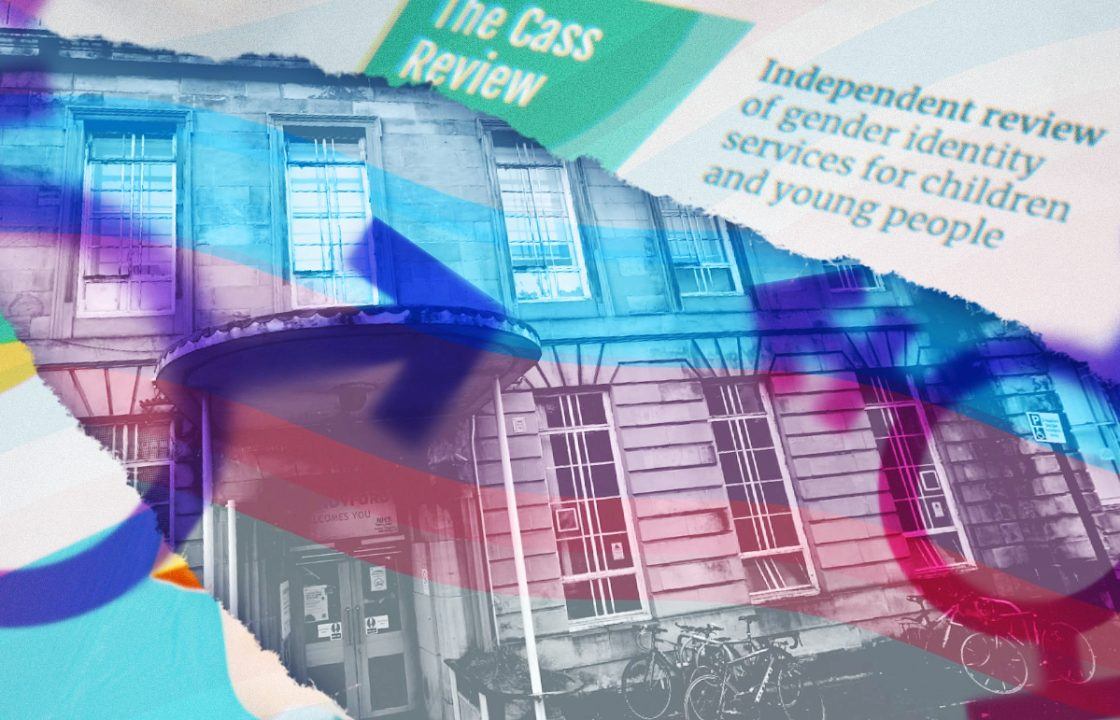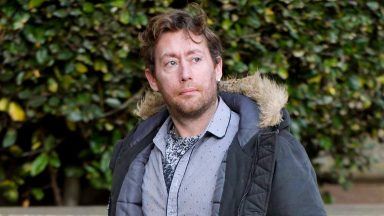Key Points
-
 Scottish health boards have paused the prescription of puberty blockers to new patients
Scottish health boards have paused the prescription of puberty blockers to new patients -
 Scotland’s health secretary has welcomed the decision and lamented the “toxic” debate around gender issues
Scotland’s health secretary has welcomed the decision and lamented the “toxic” debate around gender issues -
 The Cass Review found children had been let down by a lack of research and evidence on medical interventions in gender care
The Cass Review found children had been let down by a lack of research and evidence on medical interventions in gender care
The prescription of puberty blockers has been paused for new patients in Scotland following a major review into gender care that found the medicine was “built on shaky foundations”.
It comes after First Minister Humza Yousaf said the Government will consider every recommendation of the Cass Review released last week.
The review found the evidence base for gender care in young people had been thin and children had been let down by a “toxic” public discourse.
The Scottish Government has been under pressure to rule out the routine use of puberty blockers – for which the review said there was “not enough evidence” – as has been done in the NHS in England.
Scottish Government officials had met Dr Cass several times over the course of her review “to share information” about improving care in Scotland.
Both NHS Greater Glasgow and Clyde (NHSGGC) and NHS Lothian deferred starting new patients on these treatments in mid-March 2024 in response to the position taken by NHS England and while the publication of the Cass Review was awaited.
Following the publication of the Cass Review and having also received the support of the Chief Medical Officer for Scotland, Sir Gregor Smith, the health boards formally paused treatment.
Cass Review: What are the key findings?
-
 Gender care is “an area of remarkably weak evidence”, the review found
Gender care is “an area of remarkably weak evidence”, the review found -
 Dr Cass said there is currently “no good evidence on the long-term outcomes of interventions to manage gender-related distress”
Dr Cass said there is currently “no good evidence on the long-term outcomes of interventions to manage gender-related distress” -
 Giving testosterone and oestrogen hormones to 16-year-olds should be an approach taken with “extreme caution”
Giving testosterone and oestrogen hormones to 16-year-olds should be an approach taken with “extreme caution” -
 Care of children questioning their gender identity or experiencing gender dysphoria “needs to be holistic and personal”
Care of children questioning their gender identity or experiencing gender dysphoria “needs to be holistic and personal” -
 There was “no clear evidence” that social transition in childhood has any positive or negative mental health outcomes
There was “no clear evidence” that social transition in childhood has any positive or negative mental health outcomes
NHSGGC covers Scotland’s only gender clinic for under-18s while NHS Lothian provides care to those aged 17 and over at its Chalmers gender identity clinic.
Patients have now been formally notified of the pause while NHSGGC works with the Scottish Government to engage in research with NHS England that will “generate evidence of safety and long-term impact for therapies”.
Existing patients who are currently receiving hormone suppressants or gender affirming hormones are not affected by this pause, the health board said.
Dr Emilia Crighton, NHSGGC director of public health said: “The findings informing the Cass Review are important, and we have reviewed the impact on our clinical pathways. The next step from here is to work with the Scottish Government and academic partners to generate evidence that enables us to deliver safe care for our patients.
“We echo the views of Dr Hilary Cass that toxicity around public debate is impacting the lives of young people seeking the care of our service and does not serve the teams working hard to care and support them.
“We understand the distress that gender incongruence can cause and, while all referrals to endocrinology are paused, we will continue to give anyone who is referred into the Young People Gender Service the psychological support that they require while we review the pathways in line with the findings.”
Tracey Gillies, executive medical director, NHS Lothian, added: “The Cass Review is a significant piece of work into how the NHS can better support children and young people who present with gender dysphoria. Patient safety must always be our priority and it is right that we pause this treatment to allow more research to be carried out.”
The Scottish Government’s health secretary said he “welcomes the joint statement from NHS Greater Glasgow and Clyde and NHS Lothian”.
Neil Gray said: “We have been clear it is for clinicians and health boards to make decisions about clinical pathways, and that these decisions should be made carefully and based on the best evidence available. This is what both health boards have done, and their position is supported by the Chief Medical Officer.
“More broadly, the Cass review’s final report and findings are being closely considered by both the Scottish Government and health boards, in the context of how such healthcare can be best delivered in Scotland.
“We agree with Dr Hilary Cass when she highlights that “increasingly toxic, ideological and polarised public debate” does nothing to serve the young people accessing this care, their families and the NHS staff working hard to care for them. I remain clear that it is right that those most impacted by this change were the first to hear about these changes, sensitively and from the services caring for them. They are who should be at the centre of our thoughts when we discuss this issue.”
Scotland’s young person’s gender service, based at the Sandyford in Glasgow, announced it had paused referrals for the prescription of puberty suppressing hormones.
A service update read: “Referrals from the Sandyford Sexual Health Services to Paediatric Endocrinology for the prescription of Puberty Suppressing Hormones have been paused for any new patients assessed by our Young Person’s Gender Service.
“Patients aged 16 to 17 years old who have not been treated by Paediatric Endocrinology, but who are still seeking treatment for their gender incongruence, will no longer be prescribed gender affirming hormone treatment until they are 18 years old.”
It added patients already being treated and prescribed medications will have been contacted directly and advised that there would be no change to treatment.
The clinic added: “This service update follows research from NHS England and the publication of the Cass Review while we work with the Scottish Government to engage in research with NHS England that will generate evidence of safety and long-term impact for therapies.
“We are committed to providing the best possible clinical care for young people accessing and understand the distress that gender incongruence can cause. While this pause is in place, we will continue to give anyone who is referred into the Young People Gender Service the psychological support that they require while we review the pathways in line with the findings. A number of support networks are also available via Mental Health Support (sandyford.scot).”
Those waiting for an appointment with the service were told the update would not impact their position in the waiting list.
Scottish Trans said it was “saddened” by the move and said it “will harm trans children and young people”.
In a statement, Scottish Trans said: “This decision has been taken within the context where the reality of trans people’s experiences and lives is questioned almost daily in some of the media and some political circles.
“This makes us worry that the decision has been influenced by that context rather than solely through consideration of the best interests of trans children and young people.
“Currently, it is incredibly rare for children or young people to be prescribed puberty blockers. Between 2011 – 2023, 87 children or young people were prescribed them, averaging seven new prescriptions per year.
“In our experience of hearing from families supporting young people to access gender identity services, and from people who have used the young person’s service, they paint a picture of a service that is extremely cautious. Many people think that the process of exploration and assessment is too slow, and some feel like that caution had a detrimental impact on them, or their child. That being trans, living true to themselves, and accessing endocrine treatment as part of that, were all positive, hopeful, joyful things – but that the journey to get there took longer than was right for them, causing them pain along the way.”
The charity said that as waiting times for the service have grown, children and young people getting a first appointment today will have to wait around four years.
Scottish Conservative deputy leader Meghan Gallacher has repeatedly attempted to force a statement from the Government on the issue, and she said the health boards’ decision should have been taken “weeks ago”.
She said: “The SNP Government have been dragged kicking and screaming towards taking the necessary action to safeguard vulnerable youngsters after days of shameful silence and dithering in response to the Cass Review – presumably to placate the gender zealots in the Scottish Greens.
“Humza Yousaf repeatedly passed the buck, insisting it was up to clinicians to decide on the efficacy of puberty blockers and saying he wouldn’t be rushed into responding to Cass – when it was clear decisive action was required.”
Scottish Labour deputy leader Dame Jackie Baillie said she was “pleased” at the decision and urged the Government to lay out what changes will be made to treatment in the wake of the Cass Review.
“The guiding principle for all actions must be to ensure that young people with gender dysphoria get safe treatment,” she added.
“The messaging from the Scottish Government on the Cass report has been all over the place, leaving the public without clarity on this vital issue.”
Alba Holyrood leader Ash Regan – who resigned from the Scottish Government over her gender-critical views and later defected from the SNP – welcomed the announcement and called for a timetable to be set out for a “full response” to the Cass Review’s recommendations.
Follow STV News on WhatsApp
Scan the QR code on your mobile device for all the latest news from around the country


 STV News
STV News
























